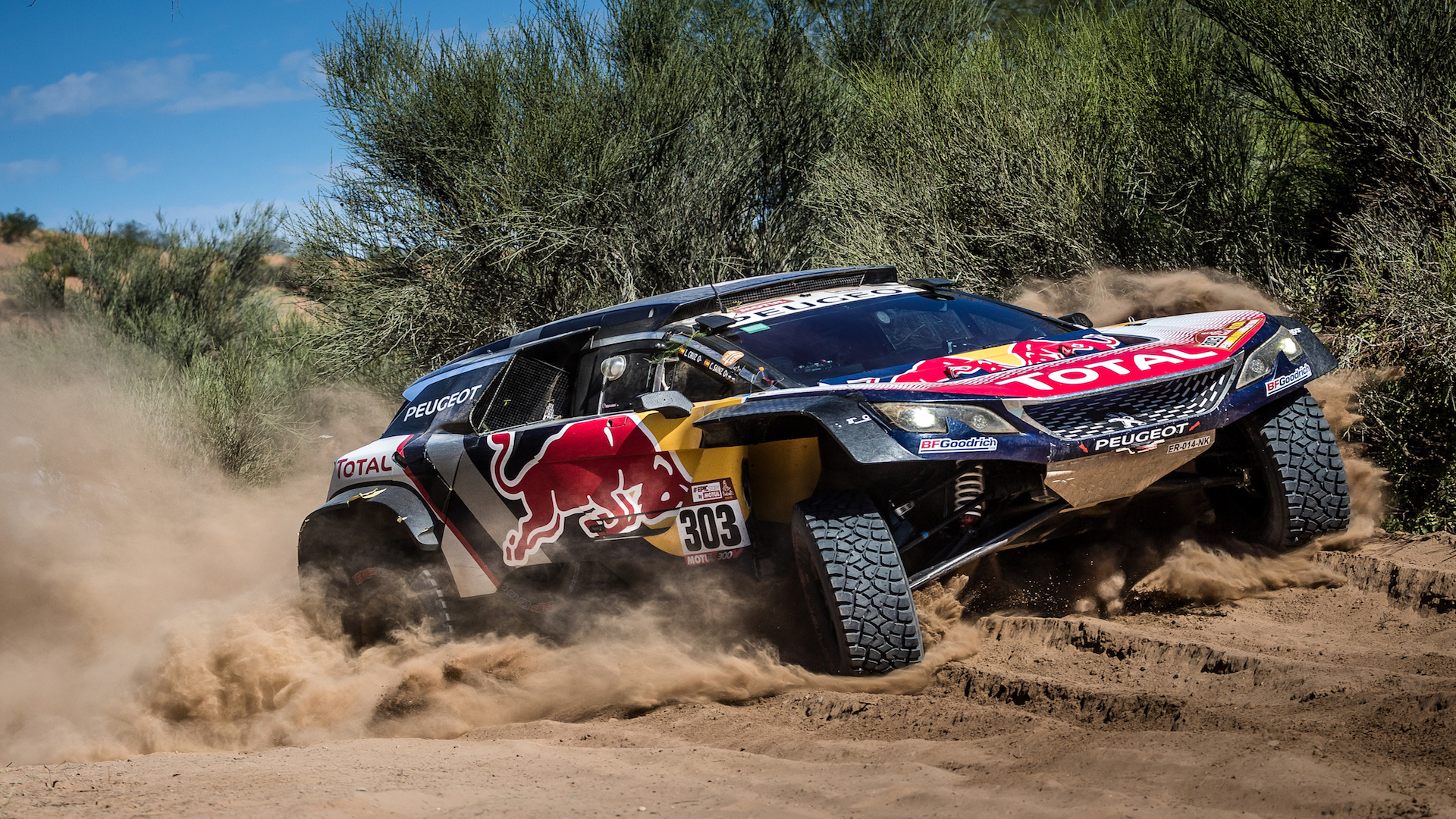

Carlos Sainz beat a field of seasoned veterans to clinch his second Dakar Rally in seven years, his first for Peugeot Sport after retiring from the race for three consecutive years. The victory was extra-meaningful to the French outfit as they had announced earlier in the year that 2018 would be its last edition of the Dakar.
When timing and scoring came to a halt, Team Peugeot Total clinched their third consecutive win in just four attempts. In 2017, Peugeot claimed the top three spots on the podium with the win courtesy of Stéphane Peterhansel, aka Mr. Dakar, who also emerged victorious in 2016. As a manufacturer, Peugeot boasts a total of eight Dakar wins dating all the way back to 1987 when the rally kicked-off in Paris, France and wrapped up in Dakar, Senegal—before the route was transplanted to South America in 2009.

Victory didn’t come easily to Peugeot and “El Matador,” even with the purpose-built 3008 DKR Maxi machines being considered a step above the rest. “It was a very difficult rally for me. It’s probably been the most difficult Dakar that I’ve ever taken part in, even counting the ones in Africa,” said Sainz.
Powered by a 3.0-liter twin-turbo V6 diesel engine that makes 340-horsepower, the race-winning Peugeot carries 105.7 gallons of race fuel and has a top speed of 124 miles per hour. Much to everyone’s surprise, the most capable rally racing vehicle in the world sends its power to the rear wheels only. After two weeks, three countries, and nearly 6,000 miles (2,400 of them on paved roads), Sainz came in ahead of two Toyota Hilux racing pickups from Gazoo Racing SA.

Peugeot will now concentrate on the FIA World Rallycross Championship as well as the forthcoming electric Rallycross championship, which kicks-off in 2020 and will feature a fully electric Peugeot 208. With world-class drivers like Sébastien Loeb at the wheel of their racing cars, the adrenaline-loving manufacturer is bound to clinch more championships in the near future.